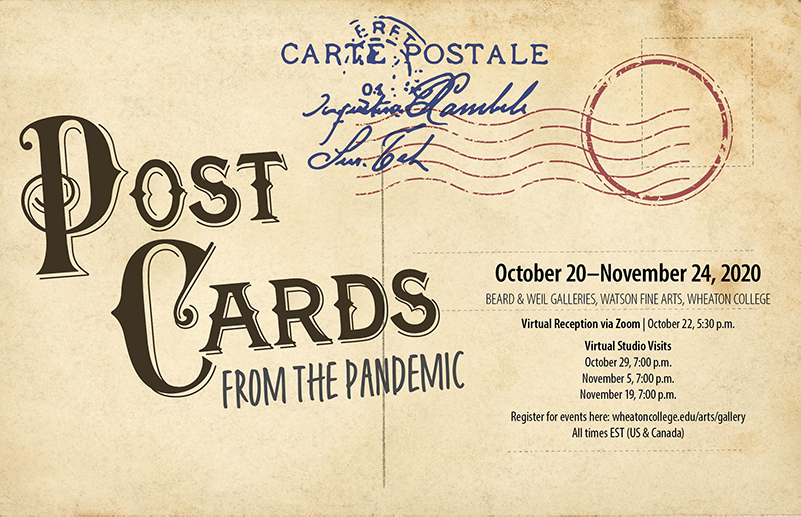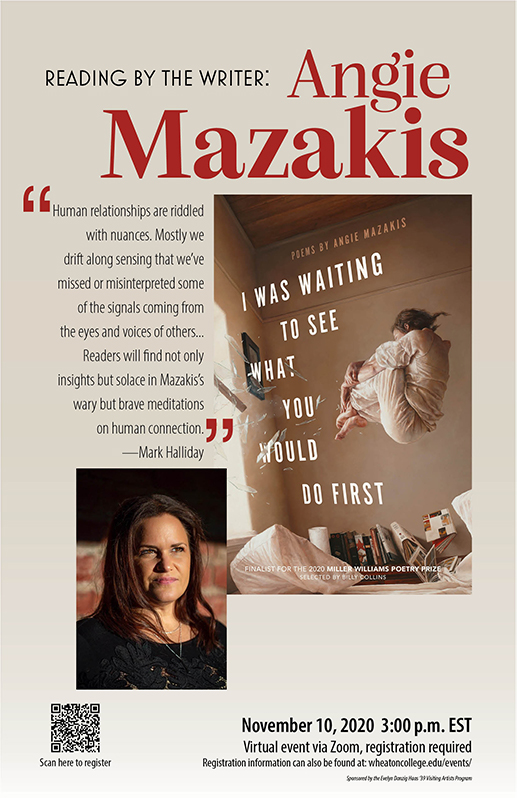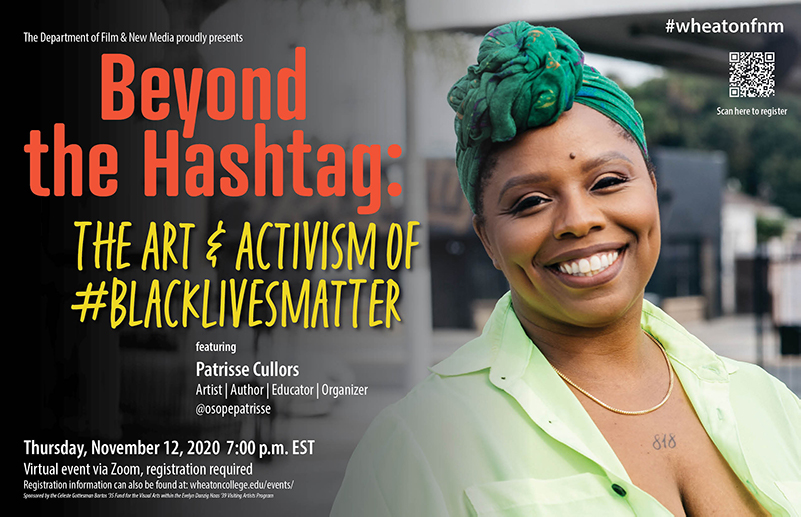Postcards from the Pandemic—Studio Visits & Discussion
VirtualJoin us on Thursdays during Postcards from the Pandemic for virtual Q&As, conversations and reflection with exhibition participants.

Join us on Thursdays during Postcards from the Pandemic for virtual Q&As, conversations and reflection with exhibition participants.

This exhibition is an open call for postcard-sized responses to the COVID-19 pandemic. All submissions will be included in the exhibition and become part of the Wheaton College Permanent Collection. The exhibition is an effort to combat the social isolation this virus has forced on us. It is a chance to see, through the eyes of another, an expression of this experience. It is an opportunity to come together when we still have to remain physically apart.

This exhibition is an open call for postcard-sized responses to the COVID-19 pandemic. All submissions will be included in the exhibition and become part of the Wheaton College Permanent Collection. The exhibition is an effort to combat the social isolation this virus has forced on us. It is a chance to see, through the eyes of another, an expression of this experience. It is an opportunity to come together when we still have to remain physically apart.

This exhibition is an open call for postcard-sized responses to the COVID-19 pandemic. All submissions will be included in the exhibition and become part of the Wheaton College Permanent Collection. The exhibition is an effort to combat the social isolation this virus has forced on us. It is a chance to see, through the eyes of another, an expression of this experience. It is an opportunity to come together when we still have to remain physically apart.

Angie Mazakis’s first book, I Was Waiting to See What You Would Do First, describes the various experiences of a first-generation immigrant. Her work has been widely published, including in The New Republic and Boston Review.

This exhibition is an open call for postcard-sized responses to the COVID-19 pandemic. All submissions will be included in the exhibition and become part of the Wheaton College Permanent Collection. The exhibition is an effort to combat the social isolation this virus has forced on us. It is a chance to see, through the eyes of another, an expression of this experience. It is an opportunity to come together when we still have to remain physically apart.

This exhibition is an open call for postcard-sized responses to the COVID-19 pandemic. All submissions will be included in the exhibition and become part of the Wheaton College Permanent Collection. The exhibition is an effort to combat the social isolation this virus has forced on us. It is a chance to see, through the eyes of another, an expression of this experience. It is an opportunity to come together when we still have to remain physically apart.

This exhibition is an open call for postcard-sized responses to the COVID-19 pandemic. All submissions will be included in the exhibition and become part of the Wheaton College Permanent Collection. The exhibition is an effort to combat the social isolation this virus has forced on us. It is a chance to see, through the eyes of another, an expression of this experience. It is an opportunity to come together when we still have to remain physically apart.

Patrisse Cullors is an internationally recognized artist, activist, and advocate for civil rights and social justice. In 2013, she and two fellow organizers—Alicia Garza and Opal Tometi— created what they described as a “Black-centered political will and movement building project.” They called it #BlackLivesMatter. Although many people know it only as a social media hashtag, it is far more than that. Cullors will discuss the art and activism behind, beyond and of the BLM hashtag, and take questions from moderators and attendees.

This exhibition is an open call for postcard-sized responses to the COVID-19 pandemic. All submissions will be included in the exhibition and become part of the Wheaton College Permanent Collection. The exhibition is an effort to combat the social isolation this virus has forced on us. It is a chance to see, through the eyes of another, an expression of this experience. It is an opportunity to come together when we still have to remain physically apart.